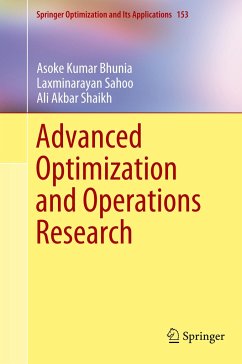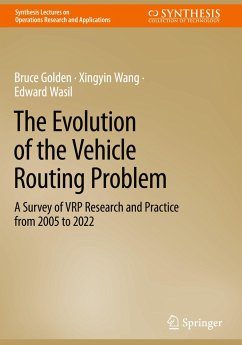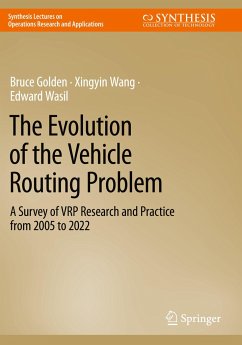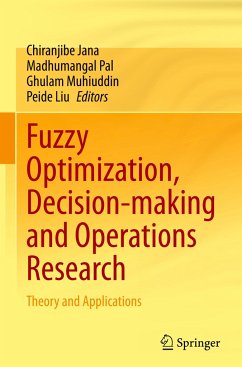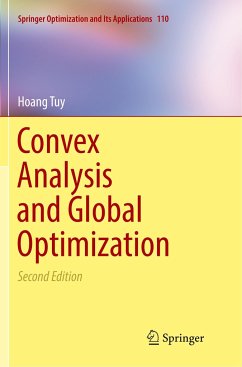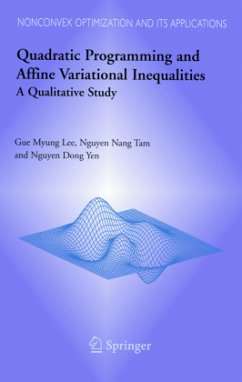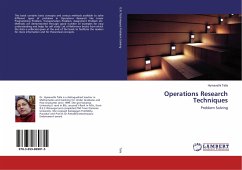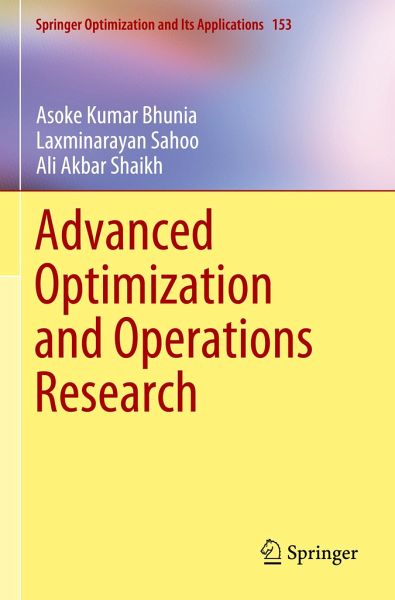
Advanced Optimization and Operations Research
Versandkostenfrei!
Versandfertig in 6-10 Tagen
43,99 €
inkl. MwSt.
Weitere Ausgaben:

PAYBACK Punkte
22 °P sammeln!
This textbook provides students with fundamentals and advanced concepts in optimization and operations research. It gives an overview of the historical perspective of operations research and explains its principal characteristics, tools, and applications. The wide range of topics covered includes convex and concave functions, simplex methods, post optimality analysis of linear programming problems, constrained and unconstrained optimization, game theory, queueing theory, and related topics. The text also elaborates on project management, including the importance of critical path analysis, PERT...
This textbook provides students with fundamentals and advanced concepts in optimization and operations research. It gives an overview of the historical perspective of operations research and explains its principal characteristics, tools, and applications. The wide range of topics covered includes convex and concave functions, simplex methods, post optimality analysis of linear programming problems, constrained and unconstrained optimization, game theory, queueing theory, and related topics. The text also elaborates on project management, including the importance of critical path analysis, PERT and CPM techniques. This textbook is ideal for any discipline with one or more courses in optimization and operations research; it may also provide a solid reference for researchers and practitioners in operations research.



